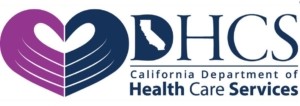Alcohol Withdrawal – Signs, Symptoms and Treatment
Table of Contents
Going through alcohol withdrawal can be difficult and painful to endure when performed at home or outside of an alcohol rehab center. In fact, many people who try withdrawing from alcohol on their own without professional help often end up relapsing just to find relief from their symptoms. However, those who choose to withdraw from alcohol at a drug rehab center can gain access to medications that treat withdrawal symptoms, and they can be closely monitored by medical staff who can intervene at any time to reduce the risk for complications.
Here are symptoms of alcohol withdrawal and what you can do next if you need help recovering from alcohol dependence and addiction.
What Are Signs and Symptoms of Alcohol Withdrawal?
Symptoms of alcohol withdrawal can range from mild to severe and affect each person differently. According to the World Health Organization, alcohol withdrawal symptoms usually begin within 6 to 24 hours after the last drink, peak in severity between hours 36 and 72, and last anywhere between 2 and 10 days.
Common symptoms of alcohol withdrawal include:
- Nausea
- Vomiting
- Loss of appetite
- Excess sweating
- Headache
- Tremors and shaking
- Increased blood pressure
- Rapid heart rate
- Diarrhea
- Fatigue
- Insomnia
- Nightmares
- Anxiety
- Depression
- Irritability
- Mood swings
- Mental cloudiness
- Dehydration
Do You or a Loved One Need Treatment for Substance Abuse?
Reduce the risks of alcohol withdrawal by detoxing at our accredited rehab facility with an experienced on-site clinical team that provides unique customized treatment programs for all types of drug and alcohol addictions around the clock.
Call to Speak with a Treatment Specialist Today
People who have been drinking heavily for a long time may experience a severe form of alcohol withdrawal called delirium tremens. Delirium tremens is considered a medical emergency and may lead to serious complications or death when left untreated. According to a report published in Alcohol Health and Research World, the mortality rate among patients with delirium tremens is between 5% and 25%.
Symptoms of delirium tremens include:
- Body tremors
- Seizures
- Excitement
- Bursts of energy
- Extreme fluctuations in blood pressure and body temperature
- Deep sleep that lasts for one day or longer
- Sensitivity to light, sound, and touch
- Hallucinations
- Extreme agitation
- Delirium
What Are the Complications of Alcohol Withdrawal?
Delirium tremens is one of the most serious complications of alcohol withdrawal, and it affects between 3% and 5% of people who go through withdrawal, reports StatPearls Publishing.
Other possible complications of alcohol withdrawal include seizures, mental health disorders, heart disease, and Wernicke-Korsakoff syndrome — the latter of which is a nutritional deficiency that occurs on behalf of the way alcohol abuse depletes the body of important nutrients.
Over time with heavy use, alcohol can change the body’s levels of hormones and neurotransmitters to interfere with fertility, heart health, sleep patterns, and mood, among many other important bodily processes. When alcohol use is abruptly discontinued, imbalances in these brain and body chemicals are what causes the majority of withdrawal symptoms and complications. However, withdrawing from alcohol at an alcohol rehab center can often minimize related risks and complications.
What Are Safe, Effective Treatments for Alcohol Withdrawal?
Alcohol detox conducted at an accredited and licensed medical facility is the safest, most effective treatment for alcohol withdrawal. Alcohol withdrawal is one of the most dangerous withdrawal syndromes alongside that for benzodiazepines, heroin, and painkillers due to the way it can induce life-threatening symptoms including seizures, dehydration, and malnutrition.
Alcohol detox usually takes place at an accredited alcohol rehab center like Dana Point Rehab Campus where patients can relax and recover without distractions while being closely monitored and supervised by experienced medical staff. Diazepam or other benzodiazepines may be given to patients to reduce withdrawal symptoms. Benzodiazepines are central nervous system depressants that have similar effects on the body to alcohol and are approved for the treatment of moderate to severe alcohol withdrawal, according to the journal CNS Drugs.
Following alcohol detox, many patients transition into an alcohol rehab program where they receive behavioral therapies to address the root causes of their addiction. Treatment programs may last 30 days or longer based on the number of time patients need to transition into a functioning, sober lifestyle.
Dana Point Rehab Campus offers drug detox, alcohol detox, and a wide range of treatment programs to help those who are suffering from substance use disorders. If you need help fighting addiction, call us today at 833-272-7342 to verify your insurance benefits and begin the admissions process.






